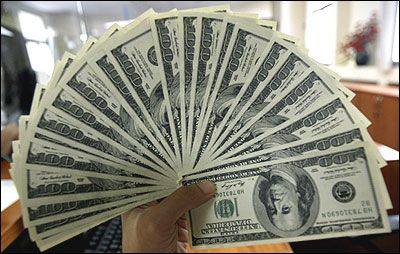 Here’s how NRIs can protect their overseas earnings from exchange rate risk.
Here’s how NRIs can protect their overseas earnings from exchange rate risk.
In the last few months emerging markets have seen an unprecedented volatility in currency which created a sense of fear among the investor and make them circumspect while remitting money to India for the purpose of savings and investments.
Also, as an individual investor is it very difficult to time the market and take the advantage.
During the said phase, the RBI has taken proactive measures thereby increasing the ceiling on rate of interest for FCNR (Foreign Currency Non-Repatriable) deposit to bring more foreign exchange and curtail the volatility in the market.
This surge in rates had made FCNR deposit very attractive thereby led to raise the inflow of foreign exchange from overseas. The rates offered on FCNR deposit to NRIs are much higher compared to certificate of deposits at their home country.
The FCNR deposits are one of the safest, secure investment options which NRIs can have and at the same time are also free from exchange rate risk.
The FCNR deposits are available in multiple currencies like, USD, GBP, EUR, JPY, AUD, CAD & CHF can be booked with different scheduled commercial banks in India offering NRIs deposits.
The FCNR deposits can be booked either by debiting the NRE accounts with any bank in India or remittances received from abroad through normal banking channel.
What makes FCNR deposits attractive is not only the rates at which it is offered but also its inherent features like, fully and freely repatriable deposit (both principal and Interest) and is exempted from taxation in India.
Some basics FAQs:
In which currency is my FCNR (B) deposit maintained?
You FCNR deposit will be maintained in the following currency as specified / choose at the time of booking deposit. These are; USD, GBP, EURO, JPY, AUD, CAD and CHF.
Are these accounts taxable in India?
As per current guidelines, the principal amount as well as interest earned on FCNR deposit is exempted form Income tax in India.
Can I repatriate funds invested in my FCNR (B) deposit?
Yes, the funds held in your FCNR (B) deposit are fully and freely repatriable (both principal and Interest).
What should be the minimum tenure to earn any interest on FCNR (B) deposit?
In order to earn interest on your FCNR (B) fixed deposit, it needs to be kept for minimum of 1 year.
What is the maximum tenure of FCNR (B) deposits?
The FCNR (B) deposit can be kept for maximum of 5 years.
Can I have a joint holder in my FCNR (B) deposit?
Yes, you can open FCNR (B) fixed deposit jointly with Non Resident Indians / Person of Indian Origins.
How can I fund, the opening of my FCNR (B) deposit?
Funding into your FCNR (B) deposit can be done by following ways:
- Online funds transfer through Click2Remit
- Wire Transfer: Transfer money through overseas banks wire transfer service to fund your KMB FCNR (B) deposit.
- Exchange House: Remit money from GCC countries, Singapore and Hong Kong and get the credit on the same day with minimal of costs.
- Foreign currency Cheque: Simply deposit a foreign currency demand draft or cheque favoring your name at any of our branches and the bank will clear the same through an overseas bank and book the FCNR (B) deposit.
- Transfers from other NRE/FCNR accounts in India: Transfer funds from the your existing NRE/FCNR bank account with other banks in India by drawing a cheque in favor of KMB account or transfer funds online from other banks account and book the FCNR (B) deposit.
Is premature withdrawal facility available in my FCNR (B) deposit?
Yes, premature withdrawal of FCNR (B) deposit is permissible. However, for period of less than 12 Months - No Interest would be payable.
Can I transfer funds from my existing FCNR (B) deposit to open NRE / NRO account?
Yes, you can transfer funds from your existing FCNR (B) deposit, to open NRE / NRO account.
What is the minimum amount required to open a FCNR (B) deposit?
The minimum amount required to open a FCNR (B) deposit varies from currency to currency. Please click here to know the currency, minimum and add-on amount required to open a FCNR (B) deposit.








 © 2025
© 2025